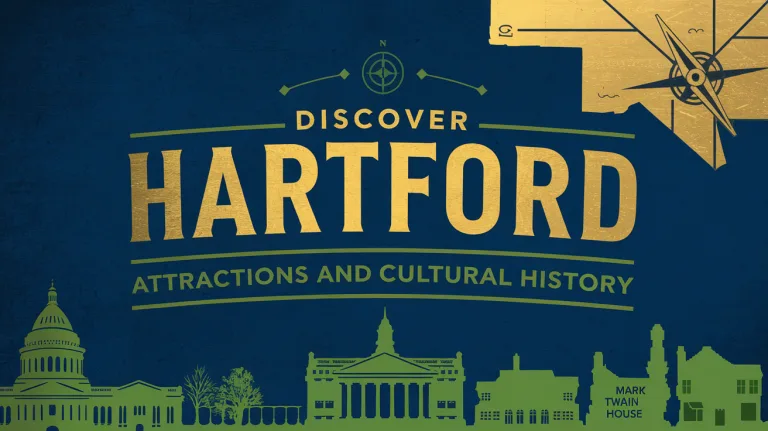Accessible City Tours: Catering To Diverse Travel Needs
Imagine exploring a city that is not only visually stunning but also accessible to everyone, regardless of their physical abilities. That is exactly what Accessible City Tours are all about. These tours are designed to cater to the diverse needs of travelers, ensuring that everyone can fully enjoy the wonders of a city. From wheelchair-friendly routes to accommodating services, Accessible City Tours provide practical information and unique perspectives for those who want to experience the best of urban environments. Whether you’re passionate about history, culture, or simply want to indulge in delicious cuisine, these tours have something for everyone. So, get ready to embark on an inclusive adventure that celebrates diversity and opens doors to a world of possibilities.
Understanding Accessible City Tours
Accessible city tours are specially designed tours that cater to the needs of individuals with disabilities or limited mobility. These tours are designed to provide equal access and enjoyment for everyone, regardless of their physical abilities. By implementing specific accessibility features and accommodations, accessible city tours give individuals the opportunity to explore and experience the best that a city has to offer.
Importance of accessibility in tourism
Accessibility plays a vital role in promoting inclusivity and diversity in the tourism industry. It ensures that individuals with disabilities or limited mobility have the same opportunities to enjoy and explore new destinations as everyone else. Accessible city tours not only provide a memorable travel experience for individuals with disabilities but also contribute to the overall economic growth of a city or destination. By incorporating accessibility, cities can attract a wider range of tourists, including those with disabilities, their families, and friends.
How do accessible tours cater to diverse needs?
Accessible tours cater to diverse needs by considering the unique challenges faced by individuals with disabilities or limited mobility. These tours are designed with various accessibility features and accommodations to ensure that everyone can participate and fully enjoy the experience. From wheelchair ramps and accessible transportation to trained guides who are knowledgeable about accessibility requirements, accessible city tours strive to create an inclusive environment where all participants can feel comfortable and welcome.
Types of Accessible City Tours
Historical exploration tours
Historical exploration tours allow participants to delve into the rich history of a city. These tours often include visits to historical landmarks, monuments, and museums. Accessibility features such as wheelchair ramps, accessible restrooms, and audio guides with closed captioning ensure that individuals with disabilities can fully immerse themselves in the historical experience.
Food-centric travel tours
Food-centric travel tours are a treat for food lovers. These tours provide the opportunity to explore a city’s culinary scene, sample local delicacies, and learn about the cultural significance of various dishes. Accessible food tours prioritize restaurants with accessible entrances, seating, and washroom facilities to ensure that everyone can indulge in the gastronomic delights of the city.
Cultural experience tours
Cultural experience tours offer participants a chance to understand and appreciate the local culture, traditions, and customs of a city. These tours often include visits to cultural landmarks, performances, art exhibitions, and festivals. Accessible cultural tours take into consideration the specific needs of individuals with disabilities, providing accommodations such as sign language interpretation, tactile experiences, and accessible transportation.
Nature and environment tours
Nature and environment tours allow participants to reconnect with nature and explore the natural wonders of a city or its surroundings. These tours often involve hiking trails, wildlife sanctuaries, and scenic landscapes. Accessible nature tours incorporate wheelchair-accessible paths, designated viewing areas, and accessible transportation options to ensure that everyone can enjoy the beauty of nature.
Planning for an Accessible City Tour
Selecting a city for your accessible tour
When planning an accessible city tour, it is important to consider the accessibility of the destination. Look for cities that are known for their commitment to accessibility and have a range of accessible attractions, accommodations, and transportation options. Researching the accessibility features and services available in a city will help ensure a smooth and enjoyable experience.
Researching accessible tour operators
To ensure a well-planned and inclusive accessible city tour, it is essential to choose a reputable and experienced accessible tour operator. Look for tour operators who specialize in providing accessible tours and have a good reputation for meeting the needs of individuals with disabilities. Reading reviews and testimonials from previous participants can help determine the reliability and quality of a tour operator.
Checking accessibility features
Before booking a tour, it is important to check the accessibility features of the attractions and accommodations that will be included. Look for information on wheelchair accessibility, accessible restrooms, and any specific accommodations that may be required. It is also helpful to contact the tour operator directly to discuss any specific accessibility needs or concerns.
Role of Tour Operators in Providing Accessible Tours
Tour operator responsibilities
Tour operators play a crucial role in ensuring that accessible city tours meet the needs of individuals with disabilities. They are responsible for carefully planning and organizing the tour itinerary to include accessible attractions, accommodations, and transportation options. Tour operators are also responsible for providing trained and knowledgeable guides who can assist and support individuals with disabilities throughout the tour.
Accessible tour guides training
Accessible tour guides undergo specialized training to understand the specific needs and requirements of individuals with disabilities. They are trained in accessibility standards, communication techniques, and providing assistance to individuals with varying levels of mobility and disabilities. Accessible tour guides play a crucial role in ensuring that participants can fully enjoy and engage with the tour experience.
Customizing tours for accessibility
Tour operators have the capability to customize tours to meet the specific accessibility needs of individuals. They can make adjustments to the itinerary, accommodations, and transportation options based on individual requirements. Whether it’s providing wheelchair-accessible vehicles or arranging for sign language interpretation, tour operators work closely with participants to create a tailored and accessible tour experience.
Specifics of Accessible Historical City Tours
Features of accessible historical tours
Accessible historical city tours provide individuals with disabilities the opportunity to explore and learn about a city’s historical landmarks, monuments, and museums. These tours often offer accessible routes, wheelchair ramps, and elevators to ensure easy access. Audio guides with closed captioning or sign language interpretation may also be available to provide an inclusive learning experience.
Popular destinations for historical tours
Cities such as Rome, Istanbul, and Athens are popular destinations for accessible historical tours. These cities boast a rich history, with numerous historical landmarks and sites that have been made accessible to accommodate individuals with disabilities. From the Colosseum in Rome to the Hagia Sophia in Istanbul, these cities offer an abundance of accessible historical attractions.
Experience shared by tourists
Tourists who have participated in accessible historical city tours have shared positive experiences of being able to explore and appreciate the history of a city without any barriers. They have expressed gratitude for the efforts made to make historical sites accessible, allowing them to fully engage with the stories and significance behind each landmark. These tours have not only been educational but also empowering, providing individuals with disabilities a sense of inclusion and connection to the city’s history.
Diving into Accessible Food-centric City Tours
Defining food-centric tours
Accessible food-centric city tours focus on exploring a city’s culinary scene and experiencing its unique cuisines, food markets, and traditional dishes. These tours often include visits to local restaurants, food tastings, cooking demonstrations, and interactions with local chefs. Accessible food tours aim to provide an inclusive and immersive gastronomic experience for individuals with disabilities.
Best cities for accessible food tours
Cities like Barcelona, Tokyo, and New Orleans are known for their vibrant and diverse food scenes, making them ideal destinations for accessible food tours. These cities offer a wide range of accessible restaurants, food markets, and culinary experiences that cater to different dietary preferences and accessibility needs. From tapas in Barcelona to sushi in Tokyo, individuals can indulge in local flavors and culinary traditions.
Attraction points in food tours
Accessible food tours often include visits to local food markets, where participants can explore a variety of fresh produce, local specialties, and regional delicacies. These tours may also involve cooking classes or demonstrations, allowing participants to learn about traditional cooking techniques and recipes. Interactions with local chefs and food experts provide insight into the cultural significance of various dishes and offer an interactive and inclusive culinary experience.
Experiencing Culture through Accessible City Tours
Understanding cultural city tours
Accessible cultural city tours provide participants with the opportunity to immerse themselves in a city’s cultural heritage, traditions, and artistic expressions. These tours often include visits to museums, art galleries, theaters, and cultural festivals. Accessible cultural city tours are designed to include accommodations such as sign language interpretation, audio descriptions, and tactile experiences to ensure that individuals with disabilities can fully engage with the cultural offerings.
Role of local guides
Local guides play a crucial role in accessible cultural city tours as they provide insight and interpretation of the city’s cultural heritage and traditions. These guides are knowledgeable about the accessibility features of cultural attractions and can offer assistance and information to individuals with disabilities. Their expertise in inclusive communication techniques and understanding of accessibility requirements contribute to a more enriching and inclusive cultural tour experience.
Inclusive activities in cultural tours
Inclusive activities in cultural tours may include interactive workshops, performances, or exhibitions that allow participants to actively engage with the cultural expressions of the city. These activities may be designed to accommodate different abilities and disabilities, ensuring that everyone can participate and enjoy the cultural experience. Accessible transportation is also provided to ensure ease of travel between the different cultural attractions.
Reconnecting with Nature in Accessible City Tours
Environment-focused city tours
Environment-focused city tours enable individuals to reconnect with nature and explore the natural beauty of a city or its surroundings. These tours often involve visits to parks, gardens, wildlife sanctuaries, and eco-friendly attractions. Accessible nature city tours prioritize wheelchair-accessible paths, viewing areas, and transportation options to ensure that individuals with disabilities can fully experience the serenity and beauty of nature.
Best cities for nature tours
Cities like Vancouver, Sydney, and Cape Town are renowned for their stunning natural landscapes and diverse ecosystems, making them popular destinations for accessible nature tours. These cities offer a range of accessible parks, botanical gardens, and nature reserves that allow individuals to experience the tranquility and beauty of nature. Whether it’s exploring Stanley Park in Vancouver or visiting the Royal Botanic Garden in Sydney, accessible nature tours provide a unique connection to the natural world.
Making nature tours accessible
To make nature tours accessible, tour operators and destinations implement various accessibility features. These may include wheelchair-accessible trails, designated viewing areas with accessible seating, and accessible transportation options. Additionally, tactile or braille signage, audio descriptions, and guided tours are provided to ensure that individuals with vision or hearing impairments can fully engage with the natural environment.
Technology and Accessible City Tours
Role of tech in accessible tours
Technology plays a significant role in enhancing the accessibility of city tours. It enables individuals with disabilities to access information, navigate their surroundings, and communicate more effectively. Assistive technologies such as screen readers, mobile applications with accessibility features, and digital maps contribute to a more seamless and inclusive tour experience for individuals with disabilities.
Trending travel tech tools
Trending travel tech tools include mobile applications that provide real-time accessibility information, such as wheelchair-accessible routes, accessible accommodations, and accessible attractions. These apps also offer features like augmented reality for virtual tours, language translation, and audio descriptions. Additionally, wearable devices and assistive listening systems enhance the accessibility of guided tours for individuals with hearing impairments.
Improving tour experience with technology
Technology improves the tour experience by providing individuals with disabilities access to relevant and timely information. With the help of technology, participants can plan their itinerary, check accessibility features, and navigate their surroundings more efficiently. Real-time updates and notifications on accessible transportation options and changes in tour schedules contribute to a more informed and convenient experience for individuals with disabilities.
Learn from Travelers’ Experience – Case Studies
Case study 1: An accessible historical tour
Sarah, a wheelchair user, took part in an accessible historical tour in Rome. She was impressed by the accessibility of famous landmarks like the Colosseum, which had ramps and elevators for easy navigation. Sarah enjoyed the informative audio guide with closed captioning, which allowed her to fully engage with the history of the Colosseum. The tour guides were knowledgeable and provided assistance whenever needed, ensuring that Sarah had a memorable and inclusive historical tour experience.
Case study 2: A food-centric tour
John, who has a visual impairment, joined an accessible food tour in Barcelona. The tour operator took into consideration his accessibility needs and arranged for a guide who could provide audio descriptions of the food and surroundings. John was delighted to explore the vibrant food markets, try various local dishes, and learn about the rich culinary traditions of Barcelona. The accessible restaurants and inclusive atmosphere of the tour allowed him to fully immerse himself in the food-centric experience.
Case study 3: A cultural city tour
Emily, who is deaf, participated in an accessible cultural city tour in New York City. The tour included visits to museums, art galleries, and theater performances. The tour operator had arranged for sign language interpretation, allowing Emily to fully engage with the cultural offerings. The knowledgeable local guides provided information in sign language, ensuring that Emily had a comprehensive understanding of the artwork, performances, and historical significance of each cultural attraction visited.
Case study 4: A nature-focused tour
David, a nature enthusiast who uses a mobility aid, went on an accessible nature tour in Vancouver. The tour included visits to Stanley Park and the Capilano Suspension Bridge Park. David appreciated the wheelchair-accessible trails, designated viewing areas, and the informative audio guide that described the flora and fauna. The tour operators provided accessible transportation and ensured that David had a seamless and inclusive nature tour experience, allowing him to reconnect with nature.






